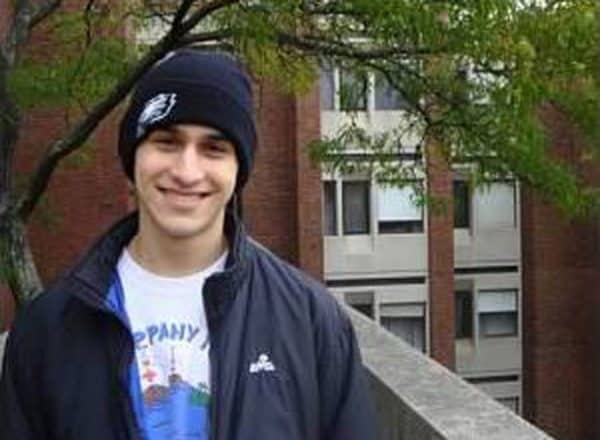Why Reddit’s Boston Marathon blunder will happen again


In the days following the Boston Marathon bombing, speculation swirled on the internet and in the media as to the identity of the perpetrator(s).
Was it one man? Was he American? It was Patriot Day, after all, and also tax-filing deadline day, and the anniversary week of the Oklahoma City bombing, as well as of the siege at Waco. To this day, Timothy McVeigh has no shortage of admirers among a certain demographic. But speculation of this sort in the immediate aftermath of a tragic event can have dangerous consequences.
Social media, and some of the mainstream media, split into three camps: those who hoped the perpetrator turned out to be a domestic white man, and those who howled for foreign blood. The third camp urged others to withhold judgement, but almost no one listened to them. The difference between the media and everyone else is that most reputable news outlets maintain some pretence of journalistic standards, with teams of lawyers advising them over every word, as well as a scale of exposure to the public that prevents them from engaging in baseless speculation for fear of stirring up meaningless hysteria. No such standard exists for social media.
The advent of the internet was supposed to relentlessly expose falsehoods and conspiracies, but instead seems to have had an amplifying effect.
In the days after the identities of the actual perpetrators were made public and they were on the run, several remarkable things happened. The 19-year-old bomber, Dzhokhar, went to school as if nothing happened and on Wednesday night attended a party. Hours after the bombings on Monday, he tweeted a snippet from Jay-Z, “Ain’t no love in the heart of the city, stay safe people,” and then while he and his brother were on the run, “I’m a stress-free kind of guy.”
An aunt of the two men, a lawyer-in-training who lives in Etobicoke, stood incredulously in front of a horde of reporters, cocking her eyebrow dramatically and challenging them directly. “All these pictures are on the computer,” she shouted, demanding, as she imagined a real lawyer might, to see evidence. “I have to see them. You have to have a motive first — something that would drive you to some actions. They cannot go crazy or mad or sick just for one day. As far as I know, they are fine. I don’t trust the FBI. Show me evidence.”
Many people, including friends and members of the young men’s own family, expressed outrage and skepticism that their “angels” could have committed the crime. Their mother, Zubeidat Tsarnaeva, speaking from Makhachkala in Dagestan to the Russia Today network, said, “I am 100% sure that this is a set-up. My two sons are really innocent. My son would never do this. It is a set-up. It’s impossible for them to do such things. My son would never keep a secret. If there is anyone who would know, it would be me, mother.” Dzhokhar’s friends were also shocked, for different reasons. They, too, were surprised that their mild-mannered friend could have a violent side. But where the mother painted a picture of her sons as star athletes, excellent students, and men that the FBI feared, Dzhokhar’s friends described a decent enough kid with failing grades who smoked a lot of weed.

Ruslan Tsarni, meanwhile, a lawyer uncle of the young Tsarnayevs, spoke to the media outside his suburban home in Washington, D.C., while Tamerlan and Dzhokhar were on the run and Boston and its surrounding areas were in lockdown. He was succinct in his evaluation. Asked by a reporter for a possible motive for his nephews’ actions, he replied, “What I think was behind it: Being losers.”
Then there were the reactions of people who’d never met the pair. The advent of the internet was supposed to relentlessly expose falsehoods and conspiracies, but instead seems to have had an amplifying effect. And while we have certainly seen a lot less bigfoot and UFO mania since the unverifiable 1970s (did they even happen?), there seems to be a whole lot more sinister nonsense floating around. Stuff that you’d think would be easy to debunk, given today’s easy access to cross-referencing.
People believe all kinds of things and, according to recent research, can’t even be convinced when presented with the correction, says R. Kelly Garrett, lead author of an Ohio State University study on the subject. “The problem with trying to correct false information is that some people want to believe it, and simply telling them it is false won’t convince them.”
One important change between the misinformation of today is, of course, the speed of social media. In the aftermath of the Reddit virtual witchunt, some pointed to the 1996 bombings during the Olympic games in Atlanta. A security guard named Richard Jewell was suspected to have been the culprit, but later turned out to have nothing to do with the crimes. What might have happened to Jewell or his family in the hours before his name was cleared if the events had taken place today?
There are several types of misinformation. There are willful falsehoods introduced into public discourse by those who live in their own reality distortion field. And then there were benign forms of ignorance, which muddy the waters almost without trying. The Czech ambassador to the United States, Petr Gandalovic, felt compelled to issue a statement explaining that his country and Chechnya were two different places after seeing outraged discussion of his homeland being a terrorist incubator, fuelled perhaps by autofill, blow up on Twitter. It’s a bit like Dennis Rodman, on his recent sojourn to the DPRK with the Harlem Globetrotters, expressing a hope that he might meet Psy while in the neighbourhood.
Enter Reddit, the online community dedicated to sharing interesting links and providing a community soapbox for groups of people to engage with any topic. After the FBI published photos of the two Boston Marathon “bag men” and then identified them merely as “Suspect #1” and “Suspect #2” (aka. “black hat” and “white hat”), a few amateur sleuths at Reddit went to work, creating a thread entitled “Is Missing Student Sunil Tripathi Marathon Bomber #2?” (now deleted). Within hours, a user called “pizzatime” identified “white hat” as 22-year-old Pennsylvania student Sunil Tripathi. The result was an outpouring of bile and threats directed towards the Facebook page that his family had set up to help find their missing son. “A tremendous and painful amount of attention has been cast on our beloved Sunil Tripathi in the past twelve hours. We have known unequivocally all along that neither individual suspected as responsible for the Boston Marathon bombings was Sunil,” the family posted after the storm had subsided.
At the moment the Redditors thought they had their man, user “scottlawson” exclaimed, “Reddit was right!” User “Shahe_B” then observes, without a trace of irony, “This thread is about to blow up. Being RT’d all over Twitter.” There is then a kind of explosion of ignorance, of various users talking about “too many coincidences” for the suspect not to be Sunil, and “the thing that set off my alarm bell”, accompanied by a lot of self-congratulation and offers of pizza to reward a job well done. “Internet FTW,” wrote “d1z”.
There may be a perverse upside to all the thuggish irresponsibility, though. The tremendous uptick in traffic to the Tripathi family’s Facebook page has also provoked a lot of kindness and sympathy that otherwise wouldn’t have been offered. “Clearly this gave us this big boost in media attention,” Judy Tripathi said. “The thing keeping us going are all the friends, family, the wonderful people at Brown and the law enforcement who have all been so supportive.”
So, while Reddit attempts to paper over its failure by removing the offending thread and rubbing each others’ noses in the bad thing they’ve done, both old and new media slow down and the drip of information returns to its steadier pace. Until next time.

Terry Dawes
Writer
